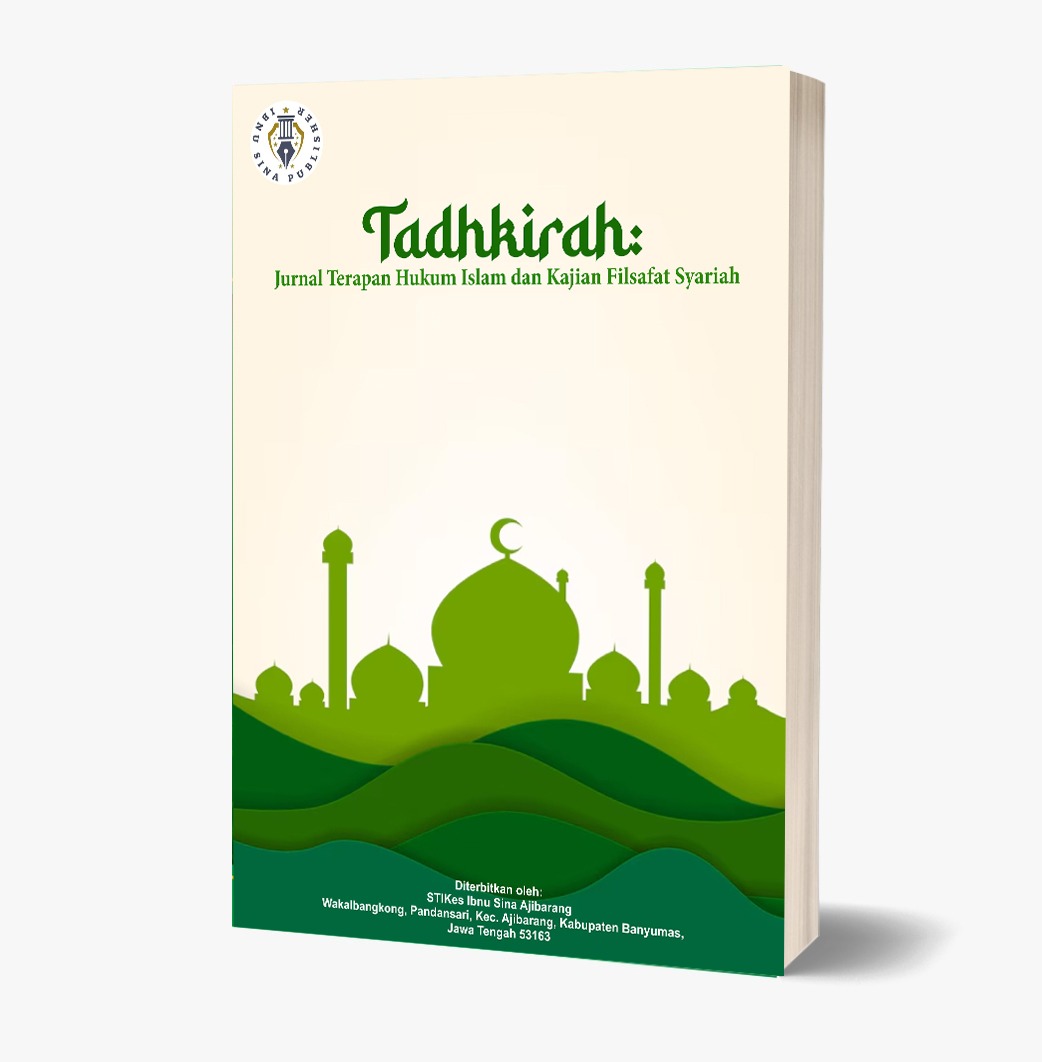Pembahasan Kaidah Fikih Khusus dalam Ibadah Mahdah Berdasarkan Prinsip Tauqif dan Niat
DOI:
https://doi.org/10.59841/tadhkirah.v2i2.125Keywords:
Fiqh Principles, Mahdah Worship, TauqifiAbstract
Mahdah worship holds a central position in Islamic teachings as a pure form of servitude to Allah SWT. Due to its tauqifi nature, the implementation of mahdah worship must strictly adhere to the provisions of the Sharia without additions or modifications. This study aims to examine and analyze specific fiqh principles that serve as guidelines in the practice of mahdah worship. A qualitative method with a library research approach was employed, through an in-depth review of classical and contemporary literature related to fiqh principles. The findings indicate that principles such as "the default rule in worship is tauqifi," "purity is not limited by time," and "no analogy (qiyas) applies to acts of worship whose rationale is unknown" function to safeguard the authenticity of worship practices from deviation. Understanding these principles is crucial to prevent innovations (bid‘ah) and to ensure that every act of worship remains aligned with Sharia directives. Furthermore, mastery of these principles assists muftis and jurists in issuing consistent and coherent fatwas. The implications of this study highlight the significance of fiqh education in strengthening the community’s awareness of authentic worship and providing a solid framework for evaluating religious practices amidst contemporary socio-religious dynamics.
Downloads
References
Abduh, Muhammad. Al-Islam wa al-Tafsir. Cairo: Dar al-Shuruq, 1995.
al-Baghdadi al-Maliki, Abd al-Wahab, al-Isyraf ala Masa'il al-Khilaf, Tunis, Mathba'ah al-Iradah
Duski Ibrahim, al-Qawaid al Fiqhiyyah ( kaidah kaidah fiqih) ( Noerfikri : Palembang 2019) 188
Dzajuli, A. ( 2006). Kaidah-Kaidah Fikih. Jakarta: Prenadamedia Grup.
Djazuli, A. Kaidah-Kaidah Fikih: Kaidah-Kaidah Hukum Islam Dalam Menyelesaikan Masalah-Masalah Yang Praktis, Jakarta: Kencana, 2006
Hammam. “Implementasi Kaidah Al-Umuru Bimaqasidiha Dalam Praktik Jual Beli”. MASTER: Jurnal Manajemen dan Bisnis Terapan. Vol.3, No. 2. 2023.
Ibadi, Mahmud, Idhah al-Qawa'id al-Fiqhiyah, Jeddah, al-Haramain
Iqbal, M. (2018). Urgensi Kaidah-Kaidah Fikih Terhadap Reaktualisasi Hukum Islam Kontemprorer. Jurnal Edu Tech.
Islam Ibnu Taimiyyah, Syaikhul. “Majmu' al-Fatawa”. Riyadh: Dar al-Watan. Vol. 1. No. 2. 2005.
Mudjib, Abdul, al-Qawa'id al-Fiqhiyah, Jakarta, Kalam Mulia, 2001
Naafiu Akbar, Mukhammad. “Implementasi Kaidah Al Masyaqqah Tajlib At Taisir Dalam Ibadah”, Jurnal Tinta. Vol. 4, No. 2. 2022.
Rafidah Yasin, Ahyanir. “Hukum Menggabungkan Dua Niat dalam Satu Ibadah Mahdhah (Perspektif Kaidah Fikih)”. Skripsi- UIN Alauddin Makassar, 2019.
Rahmawati, Hesti. Shinta Adha Selina, Deassy Arestya Saksitha, “Penjelasan Dan Klasifikasi Konsep Ibadah Dalam Islam”. Al-Mizan : Journal Of Islamic Studies. Vol. 1. No. 2. 2025.
Rajab al-Hanbali, Ibnu, Abu Faraj Abd al-Rahman al-Bahdadi, al-Qawa'id fi al-Fiqh Taqrir al-Qawa'id wa Tahrir al-Fawaid, tt. Bait al-Afkar al-Dauliyah
Syukur, Amin. Pengantar Studi Islam. Semarang: CV. Bima Sakti,2003.
Taimiyah,Ibnu, al-Qawa'id al-Nuraniyah al-Fiqhiya, Riyad, Maktabah al-Rusyd. 1322 H. cet I, Juz I
Zainal Abidin, Ali. Fiqh Islam. Jakarta: Pustaka Al-Kautsar, 2009.

















